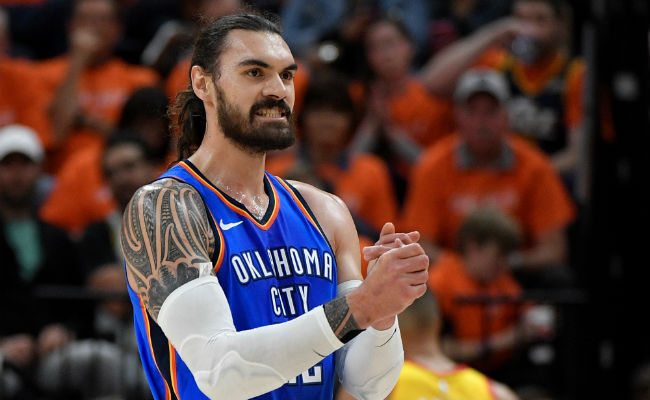
Steven Adams is known as one of the more entertaining big men in the NBA, but there’s a side to the big man that, until recently, was rarely discussed by professional athletes. Adams wrote an autobiography that comes out on Monday in New Zealand, and in it he details times he’s dealt with depression.
Adams spoke candidly about his mental health, writing in Steven Adams: My Life, My Fight that things haven’t always been easy for the charismatic 7-footer. According to the New Zealand Herald, the book details times growing up when Adams dealt with severe depression away from his family.
The first instance came after his dad Sid died, when Adams was 13. Adams lapsed into bad habits – not going to school and finding himself without a purpose.
“After my dad died, I didn’t have [the fight],” says Adams. “I knew I wanted to do something but I just didn’t know what that thing was. And if a purpose hadn’t come along soon, I would have started looking for something, anything, to feel a high.
“When I think back, I realise that I was actually very lonely and, if I’m honest, probably a little depressed. No one had told us how to cope with grief. We didn’t see a counsellor or go to any therapy sessions.”
Adams writes that basketball gave his life a purpose, which is something he’s carried with him into his professional career. He says he’s happy playing with the Thunder and contributing to the international growth of the NBA. But there were times growing up — especially while at Notre Dame Academy in Massachusetts, where he played for one year in high school — that he struggled with loneliness.
Adams said the key was to find a routine with basketball that kept him busy and away from negative thoughts.
“For me, the trick to fighting thoughts of loneliness has always been to find a routine,” Adams wrote. “I had a packed routine the whole time I was in Wellington and it had never given me the time to sink into self-pity.”
The revelation comes after an NBA season in which a number of players spoke out about their own struggles with mental health and depression.






